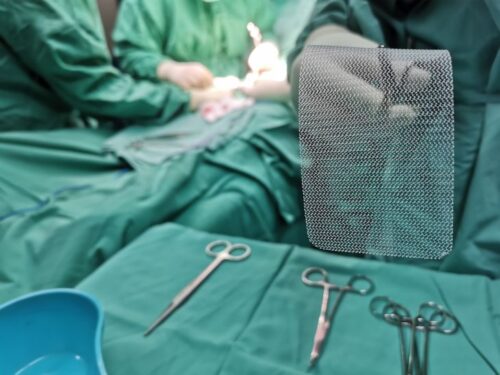Hernia repair is a common surgical procedure undertaken by millions worldwide to remedy hernias, which occur when an organ, intestine, or fatty tissue passes through a perforation or a weak spot in the surrounding muscle or connective tissue. The introduction of hernia mesh has revolutionized this surgery, promising reduced recurrence rates and quicker recovery times. However, this innovation is not without its complications, distinguishing it from standard surgical risks associated with hernia operations.
Understanding these differences is crucial for patients making decisions about their health and legal rights.
Legal Perspective: Hernia Mesh Lawsuits
The distinct nature of hernia mesh complications has led to a surge in lawsuits from affected patients. These legal actions argue that mesh manufacturers failed to warn patients and healthcare workers about the risks. Seeking the best lawyer for hernia mesh lawsuit becomes imperative for affected individuals to navigate the complex legal landscape and secure just compensation for their suffering.

Standard Surgical Risks in Hernia Operations
All surgeries carry inherent risks, including infection, bleeding, and reactions to anesthesia. In hernia repair without mesh, specific risks include long recovery times and a higher likelihood of hernia recurrence. These complications are generally well-understood and communicated to patients during the informed consent process.
Understanding Hernia Repair and Hernia Mesh
Hernia repair is a surgical intervention aimed at correcting hernias, which are defects or holes in the abdominal wall that allow organs or tissues to protrude abnormally. The primary purpose of hernia repair is to return the displaced tissues to their proper place and to reinforce the weakened area of the abdominal wall to prevent recurrence. Common techniques for hernia repair include open surgery and minimally invasive laparoscopic surgery. In open surgery, the surgeon has direct access to the hernia through a large incision, while laparoscopic surgery uses small incisions and specialized instruments guided by a camera.
The introduction of hernia mesh has been a significant advancement in hernia repair. Hernia mesh is a synthetic medical device, or it can be made out of animal tissue, designed to give additional support to weakened or damaged tissue.
According to the U.S. Food and Drug Administration (FDA), there are two main types of hernia mesh: synthetic and biologic. Synthetic meshes are made from man-made materials like polypropylene or polyester, whereas biologic meshes are derived from animal tissues that have been processed and disinfected to be suitable for use in humans.
Hernia mesh is predominantly used because it has been found to reduce the rate of hernia recurrence significantly compared to repair techniques that do not use mesh. The mesh acts as a scaffold, allowing new tissue to grow through and around it, creating a stronger repair that is less likely to fail. However, the choice of hernia repair method and type of hernia mesh used are influenced by several factors, including the hernia’s size, location, and the patient’s overall health and preferences.
Comparing Complications and Risks
When comparing standard surgical risks to the complications specifically associated with hernia mesh implants, it’s essential to understand that both categories impact patient outcomes differently and have varied implications for legal recourse.
Standard surgical risks include infection, bleeding, reaction to anesthesia, and the possibility of recurrence. These risks are generally well-documented and understood by patients undergoing any surgical procedure, including hernia repair. In most cases, these complications, while serious, can be managed with appropriate medical intervention and do not typically result in long-term health issues.
In contrast, hernia mesh complications can be more severe and have a lasting impact on patients. Complications such as mesh migration, adhesion (where the mesh adheres to internal tissues, causing pain and dysfunction), and erosion can lead to chronic pain, organ damage, and the need for more surgeries. These mesh-specific complications often emerge well after the initial surgery, sometimes years later or as chronic conditions, complicating patient outcomes and making recovery more challenging.
The distinct nature of hernia mesh complications not only affects patient health and quality of life but also has significant legal implications. Unlike standard surgical risks, which are a known and accepted part of surgical procedures, hernia mesh complications can stem from product design, manufacturing issues, or failure to warn patients and healthcare providers about potential risks. This opens avenues for legal recourse, as affected patients may seek compensation for their injuries through lawsuits against mesh manufacturers. These legal actions argue that the complications were preventable and that manufacturers did not adequately communicate the risks, highlighting the critical need for transparency and safety in medical device production.
In Conclusion
Understanding the difference between hernia mesh complications and standard surgical risks is crucial for anyone considering hernia repair. While hernia mesh offers benefits, it also carries risks that patients must weigh carefully. For those affected by mesh complications, seeking expert legal advice is a vital step towards addressing the harm experienced.
The journey from choosing hernia repair options to navigating potential complications can be daunting, but knowledge and expert legal support can make all the difference.





